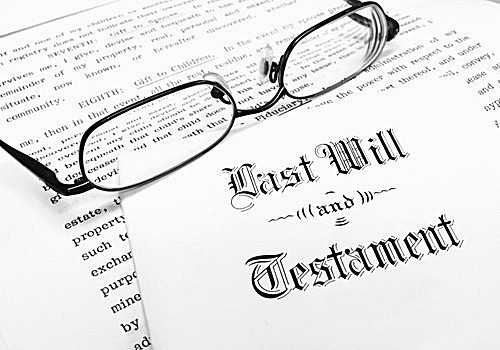Yours truly just became a Dad for the first time last week. Her name is Quinn. Or baby Q… Or baby bird (when she’s hungry). Being a Dad is incredibly tough and incredibly rewarding.
So, what does an estate planning lawyer do after such a life event? He updates his estate plan. That’s what he does.
Note every person’s plan may be a bit different. That said, my estate plan is pretty generic for someone who is thirty-something, is married, has one minor child, and is not a billionaire (or does not have a taxable estate). Many others are in the same situation. This is what I call the disaster plan, as it plans for my death or incapacity. Quinn will likely grow up to be an astronaut or the Governor of North Dakota (reasonable expectations, right?), but she may grow up to be a degenerate gambler with an addiction to Flintstone Vitamins. My “legacy” estate plan will have to wait.
Step 1: Update My Will
By “update” I mean to do one. Before you think to yourself “for shame!” for me not having a will, keep in mind I know North Dakota’s rules for intestate succession (dying without a will). If I would have died without a will, everything I own would have gone to my spouse, which is just fine by me. My personal representative would have been my spouse. Again, fine by me. If you have any questions as to whether you need one, ask a lawyer.
Now, though, it’s different. I have responsibilities I need to attend to.
My will is going to contain a testamentary trust. A testamentary trust will set up a trust fund for Quinn in the event my wife and I both die. This trust fund will select a local trust company in Fargo, North Dakota, to serve as trustee. Some people prefer individuals to serve as trustees (say, a parent or brother or sister), while others prefer the professionals. I have responsible individuals in my life who are more than able to manage the trust. But it takes time and causes stress. For me, the professional management is worth it. Being a trustee is not an easy job, and spending the fee to have it managed professionally is worth the expense. Our local trust companies do a nice job, in general, and I refer my clients to them.
The trust will require that no income will be paid to Quinn before she is 18 years old. The trustee may make discretionary payments to Quinn, however. Quinn wants to buy a Corvette? Trustee should use its discretion to say no. Quinn graduates early and wants to go to astronaut school? Trustee should use their discretion to say yes.
The trust will direct income to start to be paid at age 22. At this point, she will hopefully be somewhat good with money. At age 25, half the trust estate will be paid out. At age 30, the rest will be paid out and the trust will terminate. Younger people, as a general rule, aren’t good with money. Also, cash windfalls can ruin a person. But at some point, she will need to manage it on her own. I think the 25/30 split is a good balance.
We also need to select a guardian. In North Dakota, a guardian can be named in a will (it is called a testamentary appointment). Without going too much into detail, if we nominate a guardian in our will and the guardian accepts, then he/she/they will more than likely be awarded the guardianship. A guardian should have the same values as you do. More than anything, though, you should have the peace of mind that your nomination will care for the child as nearly as we could ourselves. We will sit down and talk with our choice to make sure he/she/they are able and willing to take on this responsibility if needed.
My will and my wife’s will are going to be mirrored. This means they will be the exact same in substance in the more likely case of one of us dying before the other.
Step 2: Update My Insurance
Children are expensive. The last thing I want to do is burden my family or guardian with the cost of taking care of Quinn without providing the means to do so. I’m relatively young and in good health (despite sitting for 10 hours a day), so insurance is cheap. Insurance isn’t for everyone in every situation, but it is an obvious choice to protect against risk.
I will need to update the beneficiary designations. If I die, the life insurance money will go to my wife. No problem there. If both my wife and I die, the life insurance money will likely find itself to Quinn without making an update. But it’s not ideal. Most likely, it would have to be put in a custodianship with an unknown and non-appointed custodian. Unless I make the update, it will not find its way into the Trust for Quinn’s benefit. That’s where it needs to be.
Note also it’s not just life insurance. A disability can cause loss of income as well. I will need to review my short term and long term disability policies to make sure they are sufficient.
Step 3: Update My Other Documents
My “other” documents are my durable power of attorney and my advanced health care directive (also known as a living will). They are just as important as my will. I want someone to be able to make decisions for me if I’m not able, so I will nominate an attorney-in-fact. I do not want to burden my family with making end-of-life decisions when I can make them now, so I will memorialize them in my advanced health care directive (living will). I will select a health care agent to make decisions for me if I am not able to.
Again, individual circumstances may vary. This is what I did, and not necessarily what you should do. If you need assistance with getting your estate plan in place, please call our Estate Planning Team at 701-297-2890.










